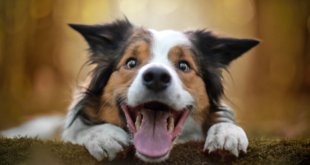How To Potty Train A Rescue Dog – Bringing home a new rescue dog is an exciting and rewarding experience. However, if your furry companion has never been potty trained, it can be a challenging task to undertake. Potty training is an essential part of your dog’s development, and it requires patience, consistency, and perseverance. In this article, we present you with some tips and tricks on how to potty train your rescue dog, so you and your four-legged friend can have a happy and stress-free life together. Whether you’re a first-time dog owner or an experienced one, our guide will help you breeze through the potty training process.
Table of Contents
1. From Rescue to Potty-Trained: The Journey of a New Dog Owner
When you bring home a new furry friend, the journey can be full of ups and downs. From rescuing a dog to potty training, each milestone can be a learning experience.
One of the first steps for new dog owners is to create a comfortable and safe living space for their pet. This includes creating a dedicated area for their food and water, as well as a cozy bed for them to sleep in. It’s important to also invest in toys, as well as collars and leashes for outdoor walks.
- Potty training can be one of the most challenging aspects of owning a new dog. Consistency is key when it comes to potty training, which means taking your pup outside frequently and giving them plenty of positive reinforcement when they successfully go outside.
- Training and socialization are also important for a new dog owner. Basic obedience training can help establish boundaries and build a stronger bond between owner and pet. Socialization is also key in helping your pup adapt to new environments and other dogs.
- As a new dog owner, it’s important to stay patient and resilient as your pet adjusts to their new surroundings. With time, love, and training, your new furry friend will become a cherished member of your family.
From rescue to potty-trained, the journey of a new dog owner may have its challenges, but the rewards make it all worth it. With patience, consistency, and love, your new pup will become a beloved companion and bring joy into your life.
2. How to Overcome Potty Training Challenges with a Rescue Dog
Overcoming challenges while potty training a rescue dog can be a daunting task, but with the right approach, it is achievable. Here are some tips to help you through the process:
– Consistency is key: Ensure that you establish a routine for taking your dog outside to eliminate. Take your dog out at the same time every day, preferably after meals or playtime.
– Use positive reinforcement: As your dog eliminates outside, praise and reward them with treats. This encourages them to continue performing the desired behavior in the future.
– Anticipate accidents: Accidents happen, and it’s important to be prepared for them. Use training pads or newspapers to protect your floors, and always keep a cleaning solution handy.
– Address behavior issues: If your dog continues to have accidents indoors despite your efforts, consider consulting a professional trainer. They can help identify underlying behavior issues that may be contributing to the problem.
Remember, potty training can take time, patience, and effort. But with consistency, positive reinforcement, and the right tools in place, you and your rescue dog can overcome any challenges together.
3. The Essential Steps to Potty Training a Rescue Dog
When it comes to potty training a rescue dog, it’s important to keep in mind that every dog is different and will require a unique approach. However, there are some essential steps that can help make the process smoother and more effective.
First, establish a routine for your dog. This means feeding and walking them at the same times every day so they can begin to anticipate when it’s time to go outside. Use positive reinforcement when your dog does go potty outside, such as treats or praise.
Next, consider crate training your dog. This can help them learn to hold their bladder and bowel movements until they are outside. Make sure the crate is the appropriate size for your dog and never use it as a form of punishment.
Finally, be patient and consistent. Potty training can take time and there may be setbacks along the way. Stay committed to the routine and continue to use positive reinforcement. With patience and consistency, your rescue dog will soon be potty trained and ready to live their best life with you!
4. Patience and Consistency: The Keys to Successfully Potty Training a Rescue Dog
Potty training a rescue dog can be quite a challenging task, but it’s not impossible. With patience and consistency, it’s possible to get your furry friend up to speed in no time. Here are some tips on how to make potty training a breeze.
First and foremost, set a routine. Ensure that your dog has a consistent feeding schedule and that you take them outside to potty at regular intervals. Praise them when they do their business outside and refrain from punishing them if they make a mess indoors. Dogs respond better to positive reinforcement than they do to punishment.
Secondly, invest in training aids such as pee pads, a crate, and a leash. The pee pads can be used indoors, especially when your pup is unable to hold their bladder. A crate can be used for training and when you’re not around, and the leash will come in handy when you want to take your dog outside. Don’t forget to reward your dog with treats when they do well, as it motivates them to continue with their good behavior.
Lastly, be patient. Potty training a rescue dog takes time and effort, but with consistency and a positive attitude, you’re sure to succeed. It’s important to note that each dog is different, and what works for one may not work for another. Don’t get discouraged if your dog takes longer to learn- be patient and keep at it, and soon enough, you’ll have a potty-trained pup by your side.
5. Celebrating Success: Tips for Reinforcing Positive Potty Training Habits in Rescue Dogs
One of the most rewarding aspects of rescuing dogs is seeing them grow and thrive in their new homes. Potty training can be a challenge, but with patience and consistency, even rescue dogs can learn positive habits. Here are some tips for celebrating your dog’s potty training success and reinforcing those good habits:
– Celebrate with treats: When your dog successfully goes potty outside, give them a tasty treat as a reward. This positive reinforcement will help them associate going outside with a positive outcome.
– Praise your dog: Giving your dog verbal praise and affection when they go potty outside can also reinforce those positive habits. Use a happy, excited tone to let them know they’ve done something good.
– Create a routine: Establishing a routine for taking your dog outside to go potty can also help reinforce positive habits. Stick to a consistent schedule and take your dog to the same spot every time.
– Keep up with training: Even after your dog has successfully learned good potty habits, it’s important to continue reinforcing those habits with positive reinforcement. Consistency is key to long-term success.
Remember that every dog is different, and it may take time and patience to establish positive potty training habits in your rescue dog. But with the right approach and reinforcement, you can help your dog thrive in their new home.
Potty training a rescue dog can be challenging, but if done correctly, it can be a satisfying and rewarding experience for both you and your dog. With patience, commitment, and consistency you will have your new furry friend going potty like a pro in no time.
 Treat For Dog – Brain Training for Dogs, Dog Training & Obedience Discover Treat For Dog and get your pup on the path to smarter, happier, and healthier living with brain training for dogs.
Treat For Dog – Brain Training for Dogs, Dog Training & Obedience Discover Treat For Dog and get your pup on the path to smarter, happier, and healthier living with brain training for dogs.




